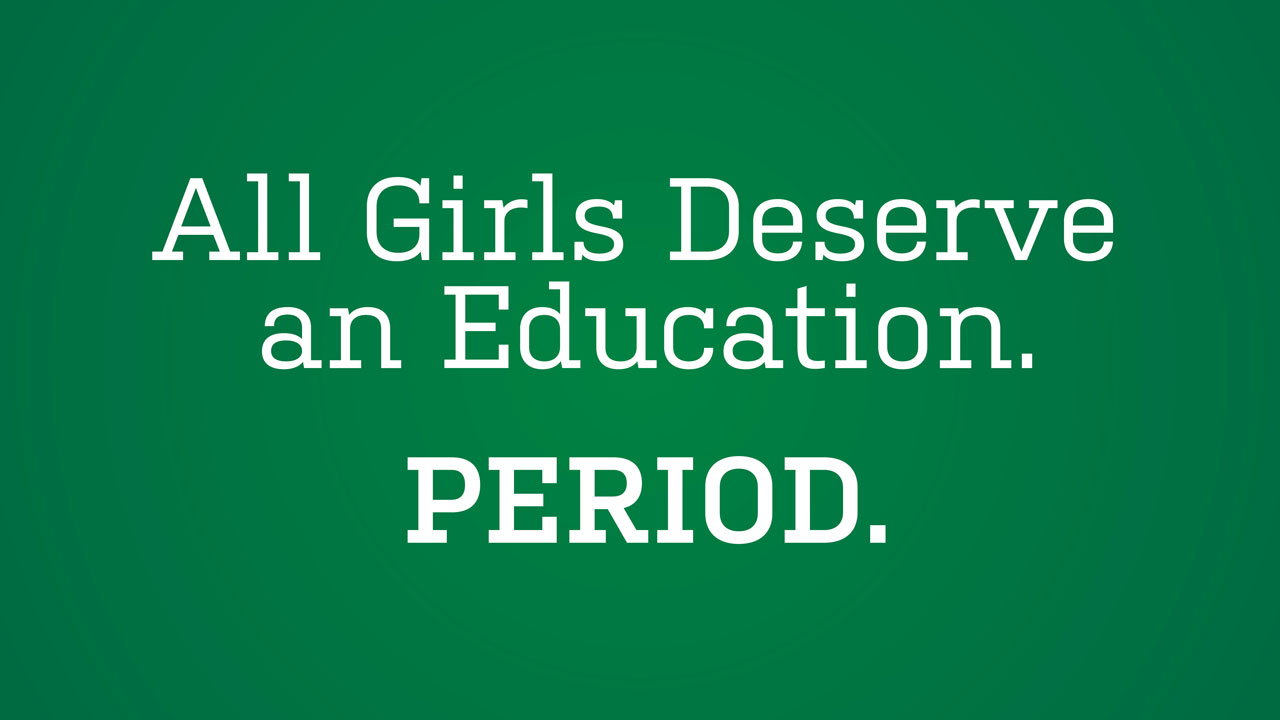During the first week of the Spring 2018 semester, Morgan Rozek sat down in an upper-level social work class. She hadn’t registered for the course and wasn’t even a social work major. But she was right where she wanted to be.
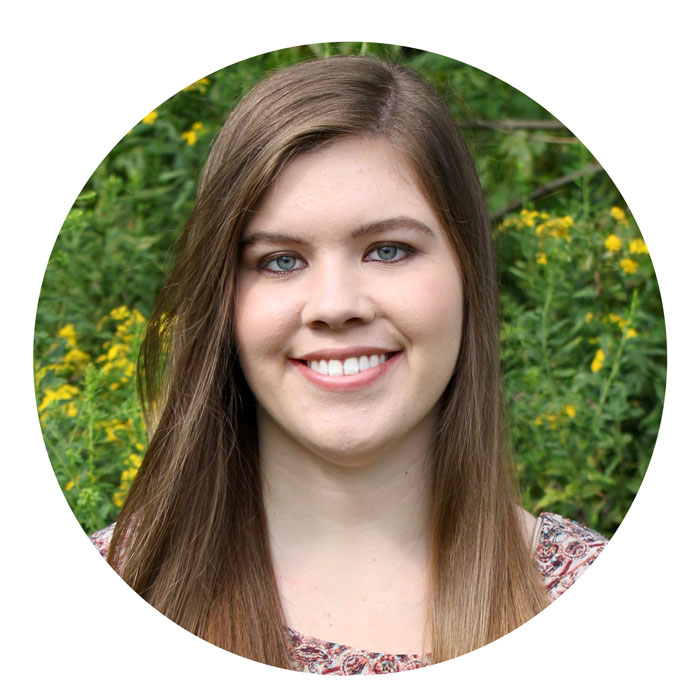 Morgan Rozek (above) and fellow UAB students (below) distribute sanitary supplies to high school girls during a 2019 trip to Kenya.
Morgan Rozek (above) and fellow UAB students (below) distribute sanitary supplies to high school girls during a 2019 trip to Kenya.Back then, Rozek was a sophomore public health major concentrating on global health studies. And the social work course focused on women’s rights in Kenya, with students designing a project to launch during a spring break trip to a rural county outside Nairobi. Rozek, who had already traveled to Africa for community service projects, found the opportunity to be irresistible. “The need for public health intervention is high there, and the potential for innovation is great,” says the Madison, Alabama, native. “Plus the culture is rich, and the people are so giving.”
Once she got the OK to join the course, Rozek and her classmates developed the Lady Pad Project, an initiative that supports the education of girls by promoting menstrual health. While supplies such as menstrual pads are available in village shops, 65 percent of Kenyan women and girls cannot afford them, according to the nonprofit Huru International. Instead, some girls use mattress filling, leaves, or even mud to meet their hygienic needs. And many simply stay home from school. That places the girls at greater risk of dropping out or marrying early, says Margaret Koshal, a Lady Pad Project community partner who cofounded a learning and development center for young girls in her native Maasai Mara in Kenya. She explains that girls who receive an education are less likely to become victims of female genital mutilation, to contract HIV, and to die in childbirth.
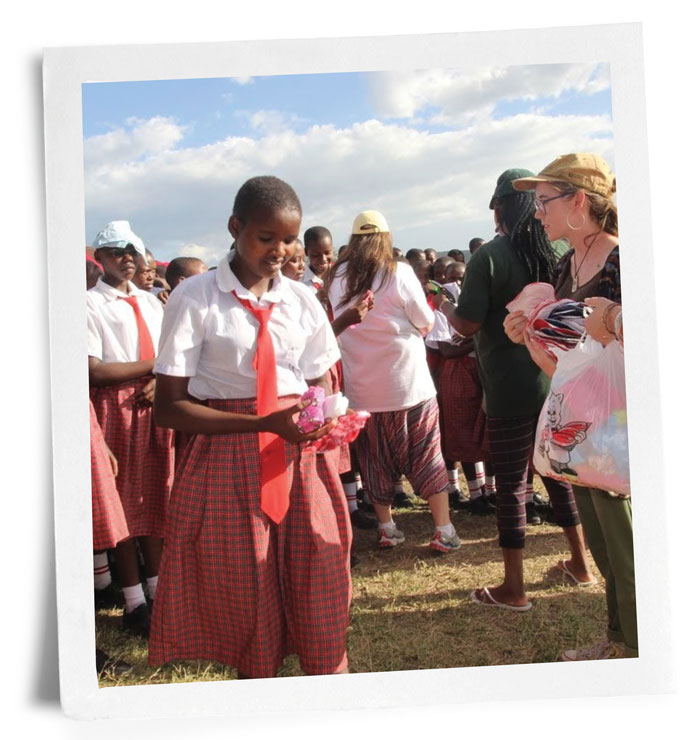
Immediate impact
At UAB, the students leading the Lady Pad Project—backed by the College of Arts and Sciences Department of Social Work and the UAB Institute for Human Rights—developed a curriculum around menstrual health. (Rozek spearheaded a lesson on hand washing and sanitation.) They also gathered supplies, including 100 reusable sanitary pads they made with Bib & Tucker Sew-Op, a nonprofit based in Birmingham’s Woodlawn neighborhood.
In Kenya, the students distributed the supplies and taught their lessons at both a primary school and a Nairobi rescue center that helps girls escaping forced childhood marriage or female genital mutilation. The information was new for many of the girls, who were around 13 years old, Rozek says. “A big part of what we taught them challenged cultural beliefs,” she explains. “Girls are made to feel ashamed or dirty. For example, we heard a story about a girl physically abused by her parents because she started her period before she was married. Her parents didn’t understand it has nothing to do with that.”
The students’ efforts have already had an impact. Rozek says. “We heard from school administrators that more girls were staying in school when they got their periods. And the headmaster’s daughter taught our lessons at two other schools.”
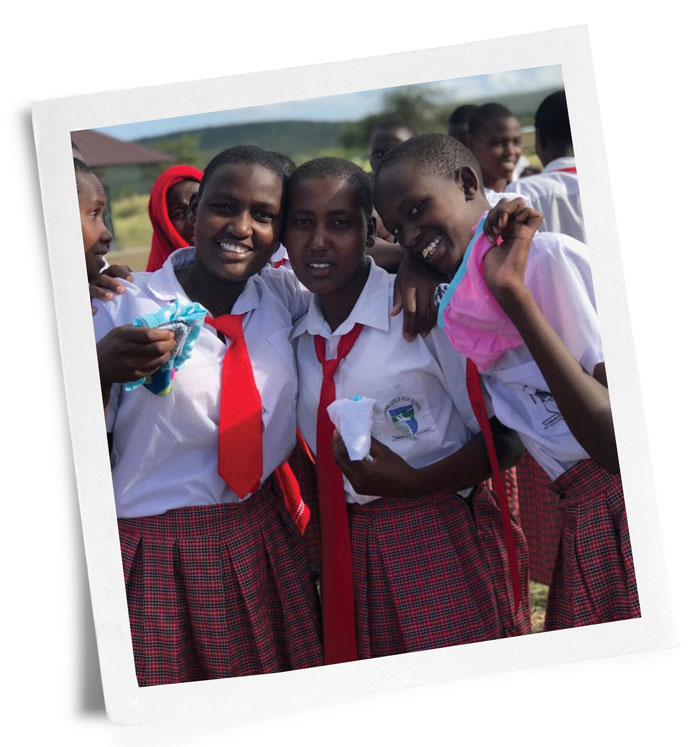
Encouraging empowerment
In 2019, Rozek returned to Kenya, where she and other UAB students taught more than 250 high-school girls. She also developed and led a lesson on empowerment at the Nairobi rescue center. And on this trip, along with sanitary supplies, the students brought extra fabric, templates, and a sewing machine so that the women they met could learn to make reusable pads themselves—“and have a new source of potential income through creating and selling the pads,” Rozek says.
That same year, Rozek and UAB social work student Alyssa Markham presented the Lady Pad Project at the National Conference on Undergraduate Research in Georgia, and Rozek’s research paper about their experience was published in the conference proceedings. She also was one of 15 students named a Sparkman Fellow by UAB’s Sparkman Center for Global Health. The honor helps students enhance their understanding of global issues through learning and collaboration with faculty mentors.
Rozek, who graduated this spring, plans to continue her work abroad with an international nonprofit or the Peace Corps. Eventually she wants to earn a master’s degree in public health, social work, or early childhood education to help improve the health and well-being of children.
“Around the globe we have the same fears—and the same goals of having a safe, healthy life with access to education,” Rozek says. “The best way to make a difference is to give people the opportunity to feel empowered. Give them access to resources. Give them knowledge so they can be autonomous and have power over their bodies and life choices.”
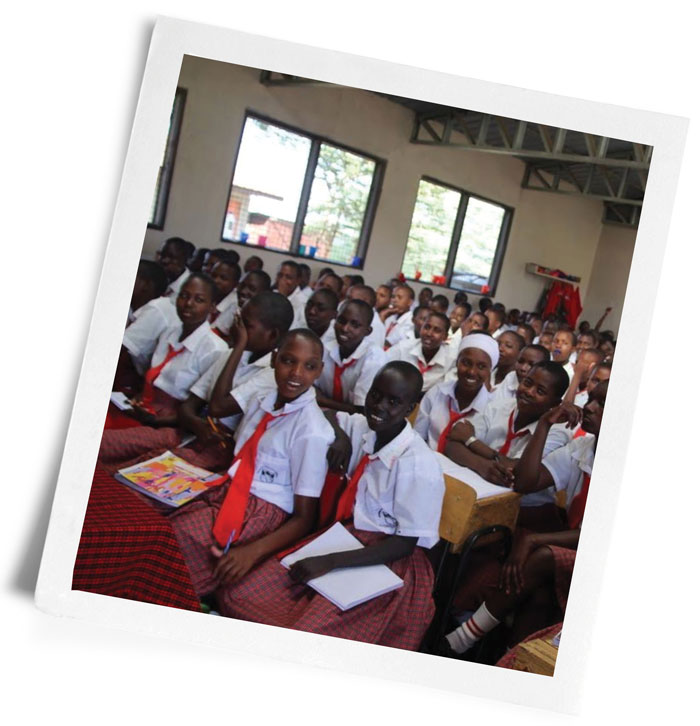
Follow the thread
On Giving Day 2019—an annual crowdfunding celebration highlighting passion projects across UAB—the Lady Pad Project received more than $5,300 in donations. Those funds have purchased sewing supplies to help Kenyan women create reusable sanitary pads, says social work professor Stacy Moak, Ph.D. She developed the original course that led to the project in collaboration with the UAB Education Abroad office and the nonprofit organization With My Own Two Hands. “We also will be able to provide instructions to the women in their native language so they can learn to sew proficiently and maintain the sewing machines, which is necessary to sustain the project,” Moak adds. Get updates on the next Giving Day.
• Learn more about the opportunities for outreach, learning, and discovery in the College of Arts and Sciences Department of Social Work and the Institute for Human Rights.
